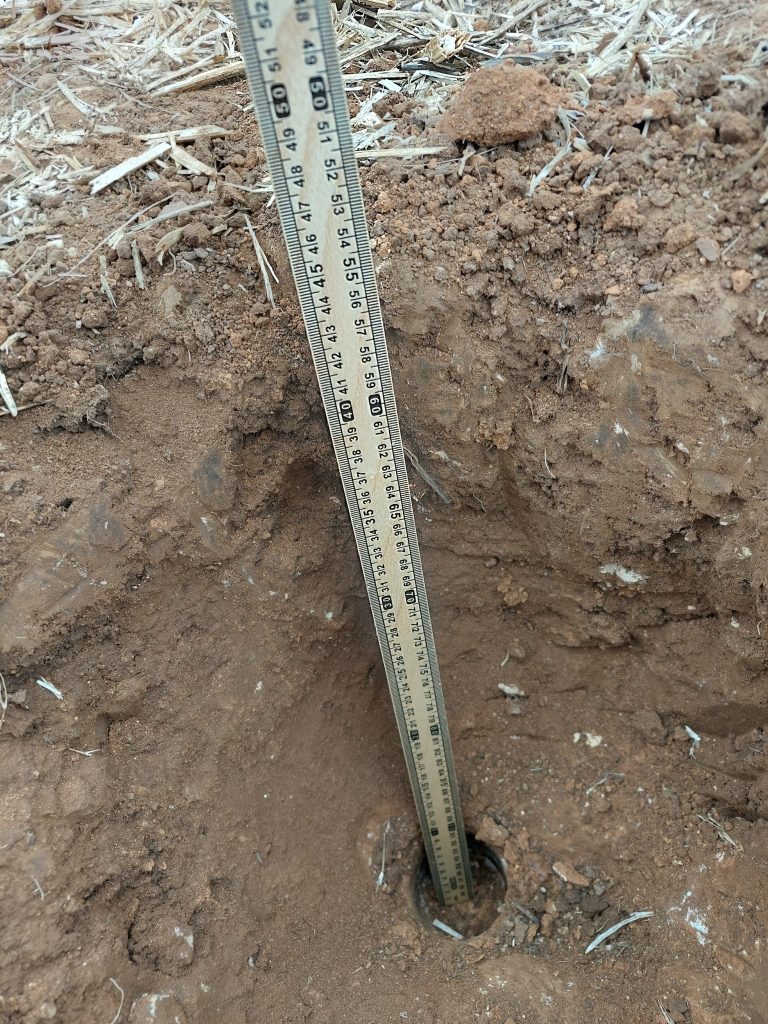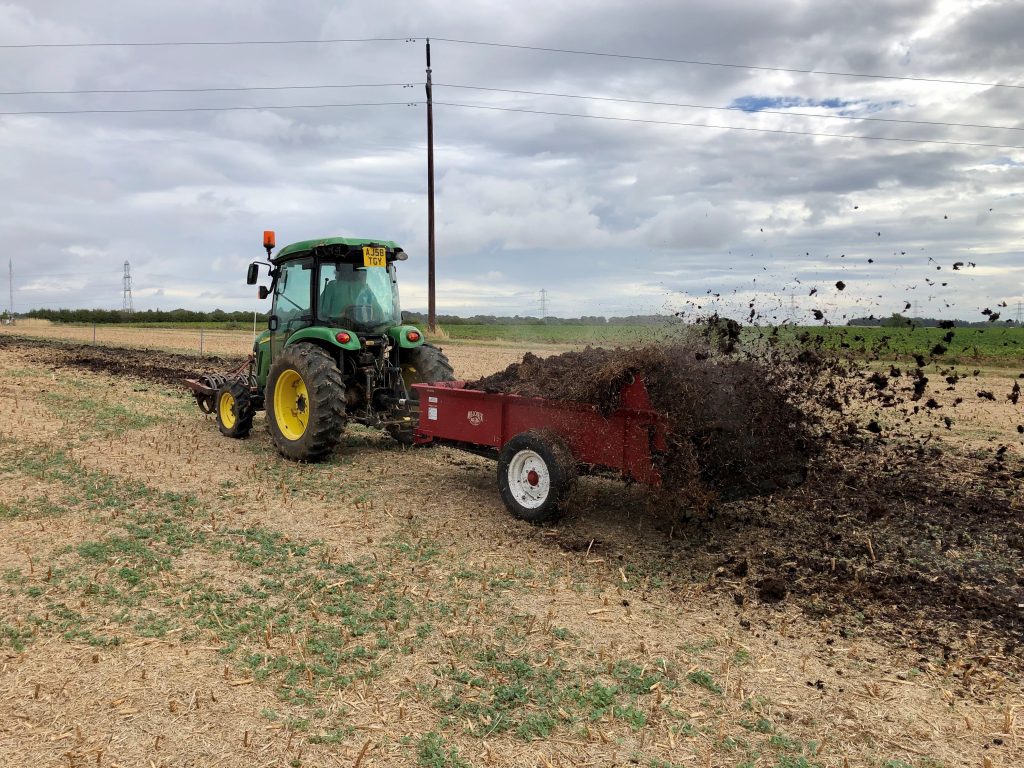This year the University of Leeds has launched a project researching regenerative farming systems in Yorkshire. This project is part of the FixOurFood programme led by the University of York, funded by UK Research and Innovation, a government fund to support research to investigate ways to transform the UK food system. As the challenge to address the food system nationally is so large, the FixOurFood project is focusing on Yorkshire as a pilot region to explore regenerative approaches that could be scaled to the UK and beyond. The project focuses on three areas of innovation 1. sustainable and healthy food for children, 2. hybrid business models and 3. regenerative farming systems.
Researchers from the University of Leeds Prof Lisa Collins, Prof Steve Banwart, Prof Pippa Chapman, Dr Gesa Reiss and Dr Ruth Wade, are leading the regenerative farming systems research in Yorkshire. Yorkshire has a large variety of farming systems, containing 13 – 17% of the UK’s crop production area and 10 – 14% of the UK’s livestock headcount, with a large diversity of soil and land cover in the region and an established network of innovative farmers. This makes Yorkshire a ideal place to investigate and understand the complex dynamics of farming systems. Together with key networks and alliances, the team at the University of Leeds are exploring existing examples of regenerative farming in the region, identifying the limiting environmental, social and economic factors, and discovering practical steps needed to support shifts towards regenerative farming. The research group will then determine what the regional potential is for implementation, and if regenerative agriculture could contribute to combat global warming if scaled up nationally.
Earlier this year, they released a survey to ask farmers what the University can do to support regenerative farming. Four key areas were identified which will be the focus of the project going forwards.
From this survey they also sought to understand the opinions, opportunities, current activities and challenges associated with regenerative agriculture. To date, they have received 166 responses, 147 (89%) said they were farmers and 79% from England. Responses came mostly from those already practicing elements of regenerative agriculture, with the majority of participants stating the main aim of regenerative agriculture was to ‘improve soil quality and fertility’ and the main motivation to move towards regenerative practices was to ‘improve soil health’. Most participants were using cover crops and direct drilling, and were most interested in reducing agrochemical inputs and increasing diversity in arable rotations. They felt the biggest challenge of moving towards regenerative agriculture was the ‘lack of information on good practice’, ‘lack of evidence’ and concerns over ‘reductions in yield’.
To support evidence-based practice, the University of Leeds is using its 317ha research farm to trial and test regenerative farming practices. The University of Leeds farm has been developed as a digitally connected smart-farm and terrestrial observatory. The main activity is a field-scale, replicated experiment using a historically conventionally managed field and measure the impacts of different transitions to regenerative agricultural practices on the soil, crop, greenhouse gas emissions and profit. This trial is in collaboration with NIAB whose Northern Regional Centre is based at the University of Leeds farm. The trial has been designed with advice from researchers and farmers from Yorkshire with seven treatments that range from a ploughed-based conventional farming system, through to significant changes in rotation and the inclusion of grazing livestock.

Key

The experiment began last month but prior to any cultivations, Dr Ruth Wade led a team of researchers to collect baseline measurements of the soils current physical, chemical and biological status. The farm is on fine loamy soils (Aberford Series) and the team collected soil samples at 10cm intervals down to a depth of 50cm. These soil samples are currently being analysed in the lab for measurements such as soil structure, aggregate sizes, water holding capacity, carbon and nitrogen content. Throughout the trial, researchers from the project team will be measuring the impacts of the different transition approaches on soil health, crop growth, agronomy, greenhouse gas emissions, and economics. Soil sensors and automated greenhouse gas measurement chambers will be installed in the experimental plots to collect real-time high frequency measurements. In addition to collecting data, the trial will be used as a regional demonstration platform for farmers to view and discuss different management practices, and the learnings and outcomes will be fed back to the larger FixOurFood programme policy and governance team at City University.

We know from experience that soils must ‘earn’ the right to be direct drilled, which in practice means resolving any existing soil health issues before switching to a direct drill system. The soil assessments carried out by the researchers indicated that the historic intensive cultivations and high field traffic have caused soil structural issues that needed to be addressed. Therefore, the treatments transitioning to regenerative agriculture have received a non-inversion, shallow cultivation in the first year to alleviate the soil structural issues, whilst beginning the transition to regenerative management. Drilling will be carried out using a Ryetec MAAG SSP Direct Drill as it is a flexible machine allowing us to drill effectively across the range of cultivation treatments with one drill.

Pig manure was supplied by the University of Leeds National Pig Centre (based at the University of Leeds farm) and was spread on those plots receiving FYM using the Morley Agricultural Foundation small plot manure spreader that allowed the farmyard manure to be applied at a specific rate and only to those plots that required it.
Companion crops and herbal ley seeds were broadcasted and rolled, and the establishment of winter wheat single varieties and winter wheat blends will happen in the autumn.

We will continue to monitor and report on the project, if you would like to know more information or sign up to the newsletter please contact us through the FixOurFood website https://fixourfood.org/
There are many farmers in Yorkshire exploring different management practices and we hope that this project is the start of a significant effort to support farmers in the region.
Dr Ruth Wade, University of Leeds
Dr Joseph Martlew, NIAB

